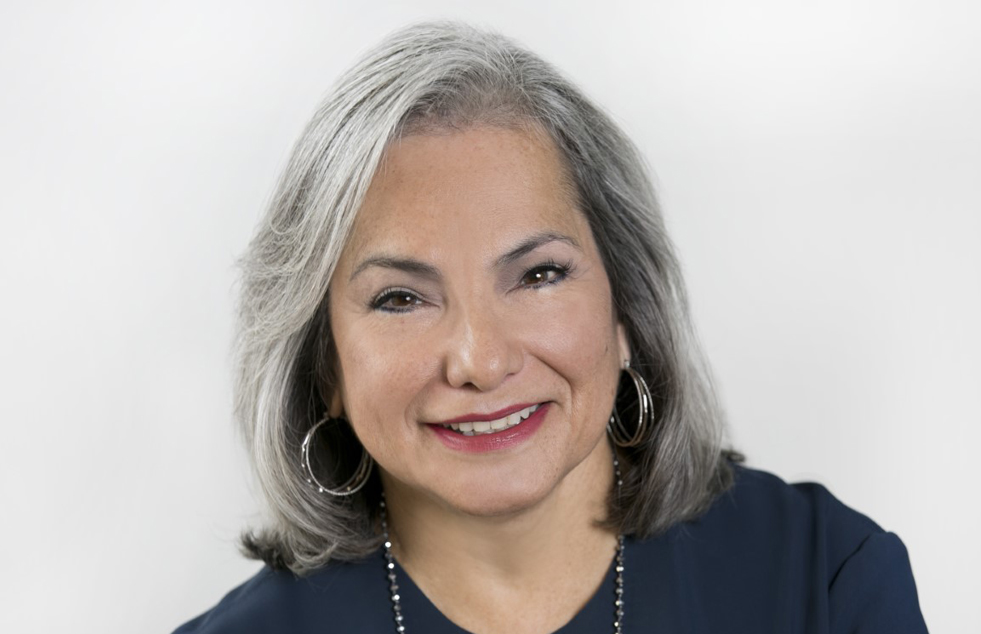When the COVID-19 pandemic hit last year, the Chicago Community Trust, along with the United Way of Metro Chicago and other giving entities, went into rapid response mode.
The Chicago Community COVID-19 Response Fund was formed, raising $35 million and quickly spending it to help residents pay their rent and meet their food insecurity and healthcare needs.
It became clear to those involved in meeting the basic needs of Black and Latinx residents, who account for two-thirds of the region’s population, that a long-term recovery plan was needed that focused on the area’s south side, west side and southern suburbs.
In October, Chicago Community Trust announced the “We Rise Together: For an Equitable and Just Recovery” initiative. Health News Illinois recently spoke with Gloria Castillo, the initiative’s director.
Edited excerpts are below.
HNI: What is the main focus of “We Rise Together”?
GC: “We Rise Together” is very focused on the economic recovery. We knew the Black and Latinx communities had never fully recovered from the Great Recession. This told us if we didn’t address systemic inequalities coming out of the recession caused by COVID-19, we were going to deepen those disparities. A big part of that involves making catalytic investments in neighborhoods to begin to see longer-term impacts. We want to invest, support and grow small businesses and create more resilient jobs because we all know there will be another recession. Recessions are cyclical.
HNI: How is “We Rise Together” different from other recovery efforts?
GC: “We Rise Together” is its multi-sector approach that puts the community at the center of the table. Too often in the past, the community voice came last. People would be designing for the community, not with the community. This multi-sector approach includes businesses, philanthropy, local government and nonprofits, in addition to the community voice. By collaborating, we are adding strength and momentum. That is the innovation of this initiative.
HNI: How are you working with the city of Chicago and other local governments to meet these goals?
GC: We are in regular contact with the city to find out where they are making their investments. We are also in contact with Cook County concerning the Invest South/West project. Invest South/West is doing a lot of infrastructure work, including transportation improvements. If there is an opportunity for us to then support something in the built environment that might include a health center or location to purchase healthy food and the transportation improvements allow people to get there, that would be a project that makes sense for us.
HNI: What healthcare disparities are you focused on?
GC: There is a 30-year life expectancy gap between residents of Streeterville and Englewood. If you live in Streeterville, you are likely to live 30 years longer than an Englewood resident. We also knew before the pandemic that underlying health issues -obesity and diabetes – were more prevalent in the Black and Latinx communities. There are also environmental issues present in communities of color that are not present in white communities. This creates a cumulative effort on health outcomes. In this case, those disparities showed up in the COVID-19 mortality rate, with 72 percent of deaths in the region occurring in the Black and Latinx communities.
HNI: How does prioritizing economic development and job creation positively impact healthcare disparities?
GC: It is important to think about how stress and trauma impact healthcare outcomes. Food and housing might sound like economic issues, but food and housing are healthcare issues for these communities … As part of “We Rise Together,” there will be specific instances where we will make investments in the built environment by addressing two things: access to quality healthcare, perhaps by embedding federally qualified health centers into the projects, and access to healthy food.
HNI: What are the initiative’s top two goals and how will you measure success?
GC: We want to see increased employment in the Black and Latinx communities and stronger, more resilient small businesses.
HNI: What is the timeline for meeting the goals and what is your financial investment goal?
GC: This is a three- to five-year catalytic initiative that feeds into the longer-term aspiration of the Chicago Community Trust to close the racial and ethnic wealth gap within 10 years.
We have $37 million in initial investments and the total number we are testing for overall investments is $250 million. Some people say that may not be enough. This plan is ambitious. It is bold. But this is the time for this type of bold initiative.
–Jessica VanEgeren for Health News Illinois
